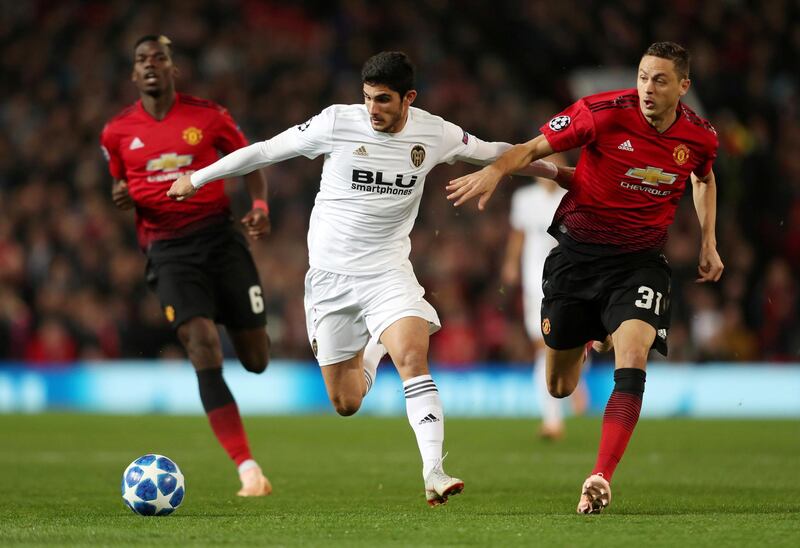The Middle East’s football-hungry audience has had many hosts in the past number of years to feed their football cravings. From Showtime (now OSN) and ART, to Abu Dhabi and Dubai Sports channels and beIN Sports. But it’s at this point in the journey we hit a road block in the variety of choice that is on offer to a Middle East fan and instead, we regress.
Ever since beIN Sports emerged in the market, and coupled with their acquisition of ART Sports, the channel has adopted a bullish and aggressive strategy en route to sports media dominance. With the benefit of being a cash-heavy business, beIN engaged the strategy knowing that they would have to write cheques to rights holders far more expensive than the ones they had seen before, inflating the rights fee market in this region.
This quickly made the Middle East market a profitable region for these rights holders, often second only to the leagues’ own home markets. In turn, sports broadcasting in the Middle East became less feasible business to sustain, making a lot of broadcasters, especially state-owned broadcasters, re-evaluate their strategy in this sector.
From a business point of view, beIN cannot be called a monopoly since much of its competition is still in business due to their state backing, but they seem to have created an ‘augmented’ monopoly in which they are the only organisation that is able to compete at the market price for rights that they have set.
What the sports fan in the Middle East deserves is a healthy and competitive landscape of broadcasters to meet demand. This, after all, is an audience that invests considerably – whether from time and effort, with matches often taking place at unfavourable times in the day (the Champions League, for example, typically kicks off around midnight on a working day), or from spending money on merchandise and trips to the various cities to watch their beloved teams.
________________
Read more
[ Qatari broadcaster beIN's piracy woes are a scenario of its own making ]
[ Saudi Arabia lodges complaint with Fifa over beIN’s ‘insulting’ World Cup coverage ]
________________
A healthier, more competitive market only elevates the standard of the broadcast service offered because networks are obliged to invest more care and effort into each property, through marketing of the leagues as well as the overall match day experience to maintain their competitive edge over their rival broadcaster and retain the loyalty of their viewers.
The best example of this is the sports broadcasting landscape in the USA. Across the four major American sports (professional basketball, football, baseball and hockey) the rights are spread across nine different broadcasters, all existing in tight competition and in turn offering the American sport consumer a plethora of options to follow their teams of choice.
Because of the increased acquisition costs for broadcast rights, beIN has explored alternative revenue options to recoup some of the cost. This usually comes in the form of TV advertising, an industry that is on the decline, or subscription fee hikes.
The increase in subscription costs has made the market vulnerable to piracy, as audiences cut the cable cord if the cost exceeds their budget.
Whether or not you agree with beIN’s tactics, it is obvious that piracy isn’t the solution.
Piracy negatively impacts the sports industry in a few ways. The first is that it doesn’t enforce to the consumer the value of intellectual property. BeIN has paid for the right to own the content of games for the duration of the contract. Supporting or even turning a blind eye to piracy only emphasises the consumers disregard to the true owner of this content. This could have a snowball effect and not just in broadcasting. One troubling consequence of not respecting intellectual property is club fans refusing to accept a football club’s intellectual property and buying fake merchandise such as jerseys.
Piracy also normalises the idea that sports viewing can and should be free across any platform – even live in person. Local fans are increasingly averse to paying for tickets to matches, with many leagues reporting dwindling spectator numbers year on year.
Along with the failure of pay-per-view products to gain a foothold in the region, and a lack of digital options for watching on a smartphone or tablet, piracy is leading to market conditions that ultimately devalues sports as a significant sector. Until the broadcast industry as a whole works towards changing, then sport will forever be seen as a secondary, if not tertiary, sector.
Since piracy is not the solution, then the first step to finding a solution would be an organic reversal of the ‘augmented’ monopoly that beIN has created for itself. Where one of the previously mentioned entities may not be able to compete with beIN’s power alone, there is strength in numbers. A working partnership between some, with one potentially taking all the Saturday matches and another all the Sunday matches for example, or one entity taking the live matches and another taking the highlights, can lead to the sudden break in the stranglehold beIN sports currently has on the sports broadcasting sector.
This, however, is a long-term strategy and should not be used to ‘strip’ beIN of all their rights at once, since that would only lead to a monopoly in the other direction. But should be a strategy formed to be able to compete and create a fair marketplace again.
A multi-broadcaster approach is one that the international sports fan is used to, with the likes of ESPN, FOX, NBC Sports in the US and Sky, BT Sports and more recently Eleven Sports in the UK, are all able to successfully co-exist globally. There shouldn’t be an issue in broadcasters co-existing in the Middle East region as well, for the benefit of fans and the sports we love.
Khalid Basyuni is an expert in regional sports media rights and managing director at MP & Silva






